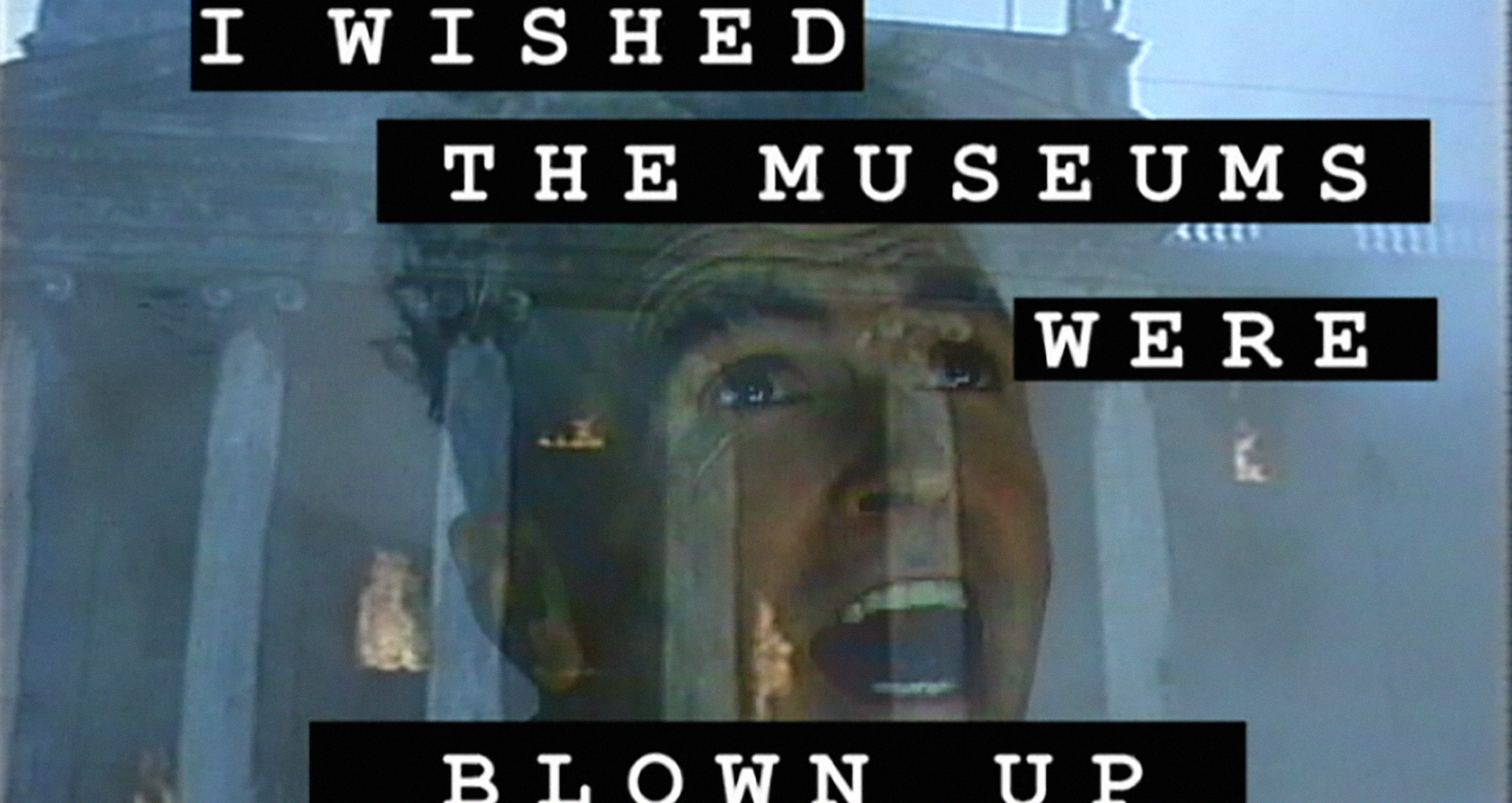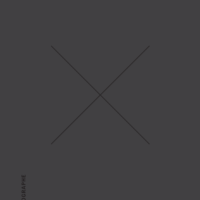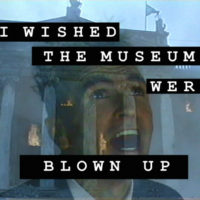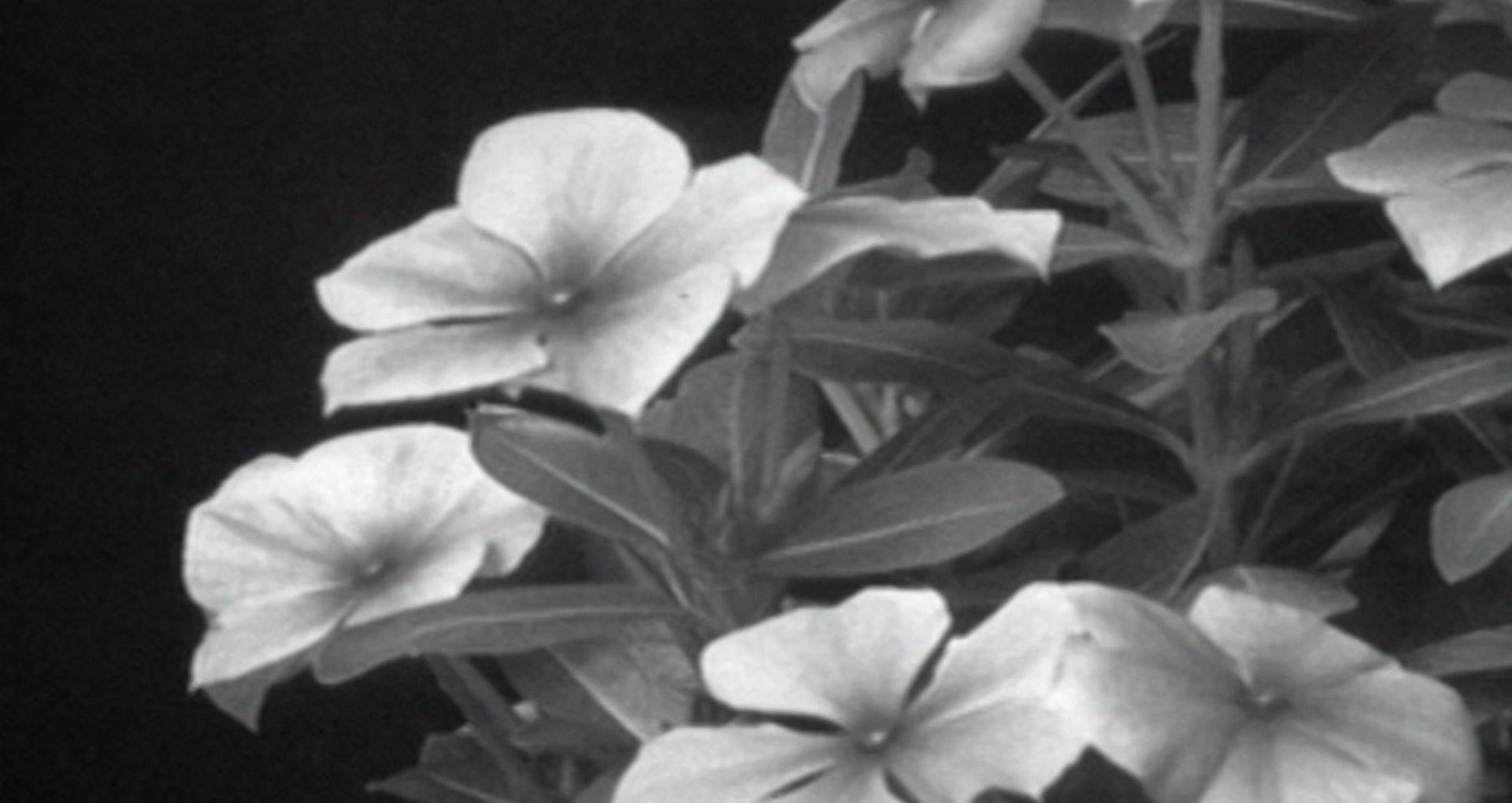
© Istvan Kantor, Revolutionnary Song, 2005
Booklaunch
Istvan Kantor – Video Anthology
Programmation
As part as the 35th Rendez-vous du cinéma québécois, Vidéographe will launch the publication Istvan Kantor – Video Anthology, directed by the curator Etienne Desrosiers.
Covering more than 30 years of video practice, this publication, along with a selection of 29 works, highlights the innovative and proteiform practice of the Canadian artist, recipient of the Governor General’s Award in Visual and Media Arts in 2004.
Istvan Kantor’s latest short piece, Scriptures, will be screened during the event.
Istvan Kantor – Video Anthology
In this publication, curator Etienne Desrosiers sheds new light on Kantor’s themes and formal vocabulary. The selection of works included in the anthology represent the essential components of the artist’s practice—video, performance, music, sound art, robotic art, text, and spoken word—as well as its major themes: neoism, oppression, technology, and socio-political critique.
The making of this publication also offered an opportunity to preserve a part of Kantor’s body of work. Several works that were originally made in now-obsolete formats (U-Matic, ½ inch, VHS) have been digitalized. By restoring and preserving Kantor’s works, Vidéographe has made them accessible to broadcasters and their audiences.
_______
Biographies
Istvan Kantor (Budapest, 1949) became interested in rebellion and radical artistic experiments at a young age, staging underground happenings, performances, and exhibitions under an Eastern Block dictatorship. After studying medicine, he immigrated to Paris as a political refugee, and then moved to Canada in 1977, where he founded the Neoist movement in 1979. He lived in New York during the 1980s, before settling in Toronto in 1991 with his three children. A multidisciplinary artist, his practice includes media art, performance, installation, sound art, robotics, writing, and music. He has been causing controversy with often illegal acts since 1966, notably at the Museum of Modern Art, New York, the Hamburger Bahnhof Museum, Berlin, and the National Gallery of Canada, Ottawa. His video works have been recognized throughout the world, and have been presented at numerous festivals, including Documenta 8 (1987), the International Short Film Festival Oberhausen (1992), Transmedial, Berlin (2001), and Osnabruck European Media Arts Festival (2009). His robotic installations have received acclaim at the Ars Electronica Festival, Linz, the Centre for Art and Media (ZKM), Karlsruhe, and ELEKTRA, Montreal, and they were the subject of a large retrospective at the Art Gallery of York University, Toronto (2005). He has made several records, alone and in music groups, and written numerous publications; the most recent of which, Rivington School: 80s New York Underground will be published by Black Dog Publishing, London in 2017. In 1998, Kantor received the Telefilm Canada award for best Canadian video; in 2004, he won the Governor General’s Award in Visual and Media Arts—the highest accolade attributed in Canada to an artist in recognition of their contribution to the visual and media arts. Istvankantor.com
Etienne Desrosiers (1969) is a filmmaker and independent curator who studied Film and Comparative Literature in Montreal. His recent curatorial projects include the travelling exhibition Luc Durand, Architect, a Canadian tour of films by Lysanne Thibodeau, and a retrospective of films by François Miron on DVD. He has written for the architectural journal Domus and the National Film Board of Canada and presented a number of media arts programmes in Canada and abroad, notably at Montreal’s Cinémathèque québécoise, and in London, Berlin, and Copenhagen. Etiennedesrosiers.com







